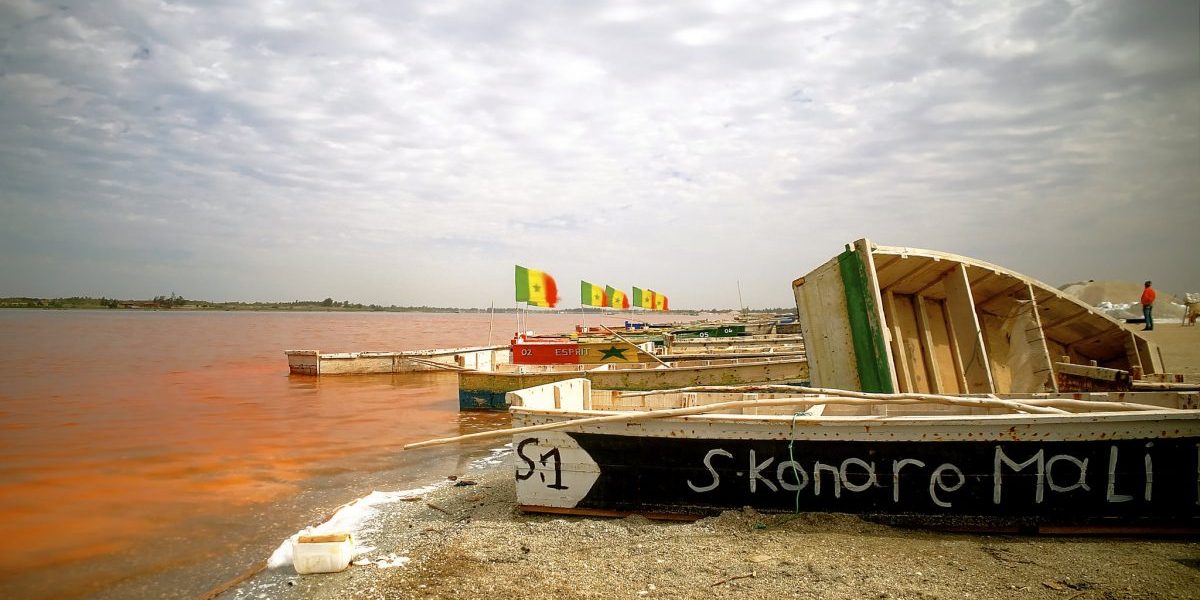Swatting away flies, they rummage for plastic, pieces of iron, soda cans, tins – even old food. It takes cunning to get the best stuff and strength to hang onto the dump trucks that mix the heap and add to its contents daily. The refuse is sold to blacksmiths, companies that recycle plastics or metals, and street artisans who turn soda cans into small cases.
The politics of Mbeubeuss, like those of any metropolitan dump in developing world cities, are as messy as the trash it contains.
Mbeubeuss was opened in 1970 on a dried up lake bed that was, at the time, well beyond Dakar’s outer fringes. But in the 34 years since, the city’s population has swelled to 3 million – one in every three Senegalese lives in the capital – and the dump has spread across 600 hectares, blurring the line where human settlement ends and the rubbish heap begins.
Mbeubeuss receives more than 457,000 tonnes of waste every year, according to the African Institute of City Planning based in Dakar. Household and industrial wastes are deposited indiscriminately, with little in the way of sorting or treatment.
Those who have the misfortune to live closest to Mbeubeuss cry foul. ‘We live with mosquitoes, rats, and other insects constantly because the dump is so close,’ said a resident of the populous Parcelles Assainies suburb, speaking on condition of anonymity.
‘The mountains of trash from the dump have ended up engulfing practically all our garden land,’ said a market gardener from the Malika neighborhood.
Belatedly, authorities have also recognized the dump site as an environmental hazard. Scientific studies conducted on behalf of the UN Development Fund, for example, indicate rising levels of ammonium in ground water beneath or near the dump. A 2003 report by the ministry of the environment described Mbeubeuss as a veritable ecological catastrophe.
But efforts to address the problem have run into trouble. Three years ago, a decision was taken to close Mbeubeuss by 2005 and open a new site at Gandoul, 70 kilometres east of Dakar. Those who make their livelihood on the rubbish heap object to moving the dump.
So do residents of Gandoul. In April 2004, they organised a march to protest the creation of a new dumpsite in their vicinity. An inter-village committee has also been set up to protect residents’ interests – and their cause has received support from the Union of Environmentalists of Senegal (RES-Greens), a political party created three years ago by green activists.
‘The cause of the people of Gandoul is the fight for basic rights,’ says Ousmane Sow Hucahard, secretary-general of RES-Greens. ‘It’s normal for citizens to defend their living conditions.’ But the party also condemns the existence of the Mbeubeuss dump. The solution to the problem of waste disposal, it advocates, lies in educating Senegal’s citizens to handle their garbage more effectively.
Under environmental regulations adopted in 2001, polluters of toxic substances can face up to $18,000 in fines and possible imprisonment for two to five years. But the code is silent on recycling, and waste continues go unsorted – either at home or at the dump.
Authorities say the proposed new Gandoul dump will adhere to European standards of waste management. To that end, the Senegalese government has signed a contract worth more than $9 million Alcyon, the Swiss recycling company, to collect and treat garbage over a 25-year period. AMA-Senegal, a subsidiary of Alcyon, says waste will be sorted and recycled. Some of it used to produce compost and even electricity. What’s left will be buried.
‘We don’t plan to just move the Mbeubeuss dump to Gandoul, but instead to create a premier center for using landfill techniques according to well-defined environmental criteria,’ says Samba Sarr, director of AMA-Senegal. Sarr emphasizes that many jobs will be generated for people living in the area as soon as the Gandoul recycling plant opens its doors.
Village residents are not convinced. ‘Leave the dump to the people of Mbeubeuss who want it,’ says Abdou Ciss, president of the inter-village committee. ‘The new site,’ he insists, ‘will bring with it theft, crime and pollution.’








